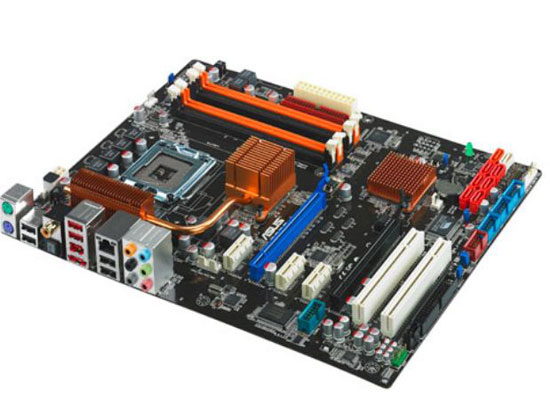Loyd's New Year - A Trio of Problem Systems
by Loyd Case on January 13, 2010 12:00 AM EST- Posted in
- Systems
I should have known better. I’d read enough online posts to know that the in-place upgrade from XP to Vista can be problematic, particularly if your XP system registry has grown to huge proportions. My own personal experience with a Vista upgrade had been moderately successful, but even that system was eventually nuked and a clean Vista install performed.
So here was a PC, with lots of fairly useless (from my perspective), but fun (from her perspective) background tasks running under XP. In goes the Vista upgrade.
Did I mention that this system had 2GB of system RAM?
Within two weeks, her system had pretty much become unusable. I scanned it with several malware detectors, and other than complaints about a couple of adware items, there were no Trojans or viruses found. So the problem really came down to an already overloaded Windows XP system that had developed massive registry and hard drive bloat after the Vista in-place upgrade. So I decided to nuke and start over.
One of the cardinal rules of troubleshooting is: change only one variable at a time.
Unfortunately in my hubris, I ignored that rule. I put her system on the bench, swapped out 2GB of Kingston DDR3 RAM for a pair of Corsair 2GB DDR3 modules. I then swapped out the QX6850 for an E8500 3.16GHz dual core CPU.
When I powered the system up, I got no POST, but the fans spun up. Also, the PC beeper didn’t beep. This is, as anyone who has built systems will tell you, one of the most ambiguous and frustrating types of errors.
So I popped her old CPU back in and rebooted.
Same thing.
So I put the old memory back in, and the system POSTed properly. I checked her BIOS on the P5Q3 motherboard, and found out it was still running the 0704 BIOS. That BIOS predated Intel’s 45nm CPUs. On top of that, if you read the summaries of the various BIOS updates, you also see a number of them with text that reads “enchances compatibility with certain memory.”

Lessons (re)learned:
- Before upgrading CPUs or memory, check the BIOS version
- Never change more than one item of hardware at a time without testing it.










109 Comments
View All Comments
deimos3428 - Wednesday, January 13, 2010 - link
Throwing hardware at a performance issue only buys time.Zelog - Wednesday, January 13, 2010 - link
That's what she said.TinksMeOff - Wednesday, January 13, 2010 - link
As a computer tech for over two decades I found this article rather refreshing to hear from a site such as Anandtech.com. You may wish to note as well that 'different parts' don't mean better parts. Under manufacture warranties, techs replace RAM, MB, CPU, GPU and HD's with the exact same parts. They just overheat, wear out or whatever and go bad over time. I not saying don't look for a better quality part, just check your warranties and get it replaced with the same parts with very little overhead (shipping & time usually).Of course, most people will not have extra parts to experiment with as your article mentions.
ciparis - Wednesday, January 13, 2010 - link
Nice article, Loyd! Good to have you here and away from all those PC magazines you've been writing for for so many years :)I had the original version of that P6T -- just sold that system after over a year of rock-solid stability. Good choice.
blyndy - Wednesday, January 13, 2010 - link
Loyd, for future reference, if your PC is running 'slow as molasses' in a loosely controlled software environment you should suspect software foremost, not hardware.Sadly, you could have confirmed or confuted that possibility simply by swapping in a spare drive (or ghosting) and doing a clean install and comparing performance.
If performance was still slow then suspect hardware.
vol7ron - Wednesday, January 13, 2010 - link
I agree.Regarding your daughter's computer:
Instead of doing a clean install, I think you should have tested the problem out a little bit - it might have been worthwhile to your readers.
1) I would like to know if the Device Manager was showing everything as connected and running properly (for all the problems)
2) I would have liked to see you get a Registry Mechanic, or some other sort of registry cleaner.
3) I would also like to know if you ran a scandisk or disk defragmenter. Often fragments cause problems.
4) I would like to know if you had any problems in safe-mode. Safe-mode is a good indicator of solvable problems. (as with running Hijack-This).
-----------------
With regards to the other problems, I am also curious if this could have been due to some "Win Rot". I would have liked to see some fresh installs before determining it was purely hardware.
loydcase - Wednesday, January 13, 2010 - link
Well, your point was embedded in my "lessons learned". Changing too many variables when trying to troubleshoot a problem sometimes mean you don't actually track down the real cause... or waste time until you do.OCedHrt - Wednesday, January 13, 2010 - link
Sometimes it is simply faster to start over than to find the problem :)Also, the not always posting in the last one can very well be a PSU issue where it can't provide enough amps for cold boot when warm.
smn198 - Wednesday, January 13, 2010 - link
Hindsight is always 20:20!